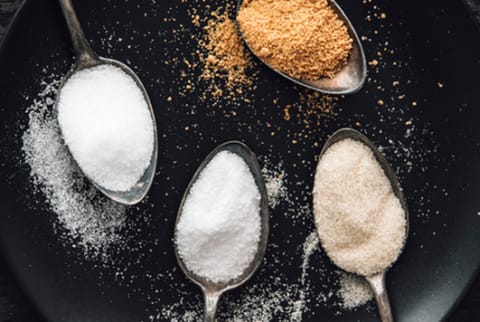Advertisement
The Crazy Side Effect Of Stevia That No One Knows About


Sugar and I have been in a tumultuous relationship for most of my life. As a child I would down cans of soda until I was in a sugar coma. I cringe at how many pounds of sugar I have likely consumed in my lifetime. The last time I had a can of soda was when I was fifteen because my dad told me that it decreased my endurance, so I quit to make the varsity track team.
However I still consumed massive amounts of sugar even though I was eating healthy with foods like yogurt, granola, and ketchup which have hidden sugars in the ingredient list.
When I counsel patients at Parsley Health to reduce or eliminate sugar from their diet, there is a collective groan. That because sugar is extremely addictive. More addictive than heroin. Just because it’s legal doesn’t mean it isn’t doing detriment to our bodies.
Over the years we have tried to replace sugar with things like high fructose corn syrup, agave, monk fruit, and stevia. Recently, stevia has become the sugar darling as a low calorie replacement that doesn’t cause spikes in insulin. It's become hard to find packaged natural health products that don't contain stevia, from drinks to cookies to energy bars.
Where does stevia come from?
The stevia plant is found to grow naturally in tropical areas of Latin America and has been used for centuries. It’s sweet taste comes from two primary glycosides—stevioside and rebaudioside. If you look at the label on certain brands you will see they only use rebaudioside because it has less of the bitter aftertaste with 450 times the sweetness of table sugar.
Should you be consuming stevia?
We have already seen that sugar is the root cause of chronic diseases like diabetes, obesity, and heart disease. Using a sugar replacement like stevia may—emphasis on may—reduce the incidence of these conditions. That said, there are studies1 that show stevia can reduce fertility and act as a form of birth control.
That said, there are studies that show stevia can reduce fertility and act as a form of birth control.
While I wouldn’t recommend avoiding stevia if you are trying to get pregnant nor using it as a form of contraception, this is clearly an area where more research needs to be done—and it might be a sign that we don't want to give stevia a 100% free pass and consume it in myriad products throughout the day. It’s also important to note that it is still a processed food in the form available to most Americans.
Is stevia safe to consume in moderation?
According to scientific studies2, we don’t know. Although it has been used for centuries in other cultures, we have taken a natural herb and mass produced into another processed food. Too much of any one thing can be toxic to our bodies.
I recommend, when possible, minimizing your consumption. Even if it is safe to consume stevia, it may still alter your taste buds making a carrot taste like cardboard instead of naturally sweet. In an ideal world, you would make your own from the leaves of the stevia plant. If that sounds too labor intensive for you, make sure to follow these label guidelines as not all brands are created equal.
What should you look for in your stevia products?
There are a few things I recommend.
- Look for ‘whole stevia leaf’ on the ingredient list and without any added ingredients like erythritol, natural flavors, agave inulin, or cellulose powder. Many companies use an extract which is processed with unknown chemicals.
- Look for ‘green leaf stevia.' This is the least processed type of stevia that has been used in Japan and South America for centuries.
- Try to choose organic. This also means it is typically non-GMO but still be wary of extra fillers on the ingredient list.
- As much as possible, try to consume unprocessed foods that are free from stevia, or try enjoying the flavors of your food without that adding sweet touch. You'll be surprised how quickly your palette adjusts!